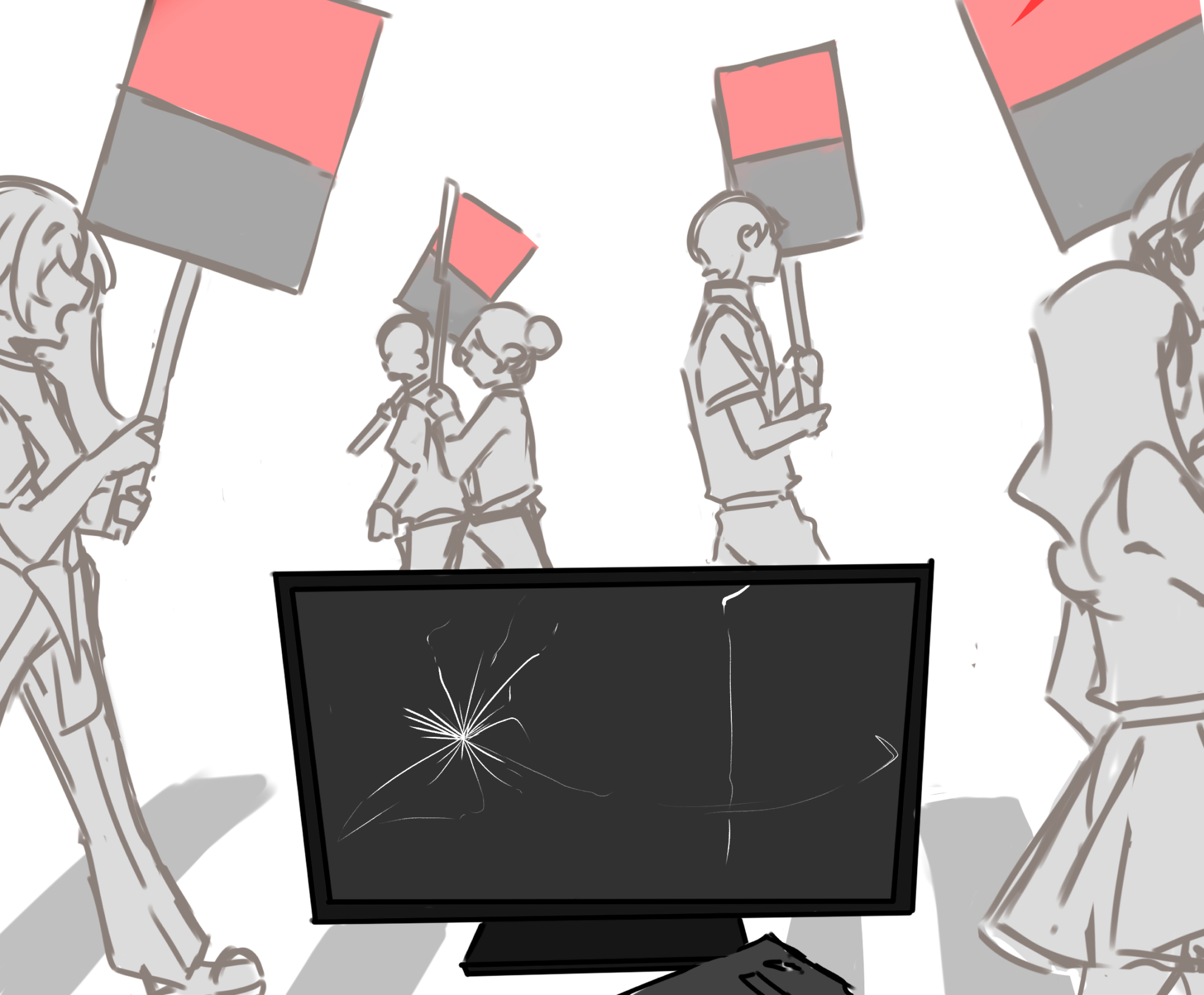“We must now exert the maximum leverage possible to get a fair contract,” reads the announcement by the Writers Guild of America (WGA), regarding the strike that started May 2, approved by over 98 percent of its members. It’s the first such strike since 2007, brought on by the drastic changes to the landscape of film and television writing since then, namely, the popularization of streaming over network television as well as the threat posed by generative language models like ChatGPT.
As tends to happen with contracts, the devil lies in the details. Many of the contracts previously negotiated between the WGA and the Alliance of Motion Picture and Television Producers (AMPTP), such as protection from pay erosion over time, apply solely to broadcast television. Thus, these benefits aren’t locked in for streaming writers. Per the WGA, “The companies have used the transition to streaming to cut writer pay and separate writing from production, worsening working conditions for series writers at all levels.” The guild says that as a result, the average salary for writers has declined by 4 percent since 2013 (unadjusted for inflation). At the same time, studio profits have risen 39 percent (also unadjusted). A proposed reform by the AMPTP was a “day rate” for comedy writers, which some WGA members fear is another step towards turning writing into a gig economy. Formalized in the guild’s demands now are minimum staffing requirements for writers rooms, as well as a guaranteed duration of employment.
The threat posed by generative AI is another issue. Experiments like “Watch Me Forever,” the never-ending AI-generated “Seinfeld” episode, have proven that language generative models are still far from professional writing. However, the rapid development of this technology is a concern for many writers. For more formulaic programs (shows like “Law and Order” that have been on the air for years) the technology could also be used now to get a decent outline of a script that a non-union writer would just have to patch up. But there isn’t a consensus from the guild over what exactly should be done about the technology. Their official demands list asks for vague “regulation”, and ideas have been circulated that range from the banning of AI on all WGA productions, or that AI may be used, but only by WGA writers.
Productions affected aren’t just streaming products—anyone in the guild is obligated not to write. Marvel’s “Blade” is on hold, as a screenplay for that film hasn’t been finalized, as is Netflix’s final season of “Stranger Things.” Some productions, like Amazon’s second season of “The Rings of Power,” are full steam ahead, just with scripts that now can’t be rewritten. Most talk shows, such as “The Late Show with Stephen Colbert” have stopped airing new episodes. But the response from industry giants has (predictably) been less than friendly.
A Disney internal memo acquired by The Hollywood Reporter told writers who also work as showrunners (a role that involves writing and producing) that they are “not excused from performing your duties as a showrunner and/or producer on your series as a result of the WGA strike.” This leaves some WGA members in an awkward position—officially on strike, but still obligated to work. In terms of official responses from the producer’s alliance, the AMPTP has stated it “presented a comprehensive package,” but is unwilling to currently negotiate it given “the magnitude of other proposals still on the table that the Guild continues to insist upon.” The WGA called the package “wholly insufficient.” It’s unclear when negotiations between the two parties will resume. Until then, the picket lines continue.





